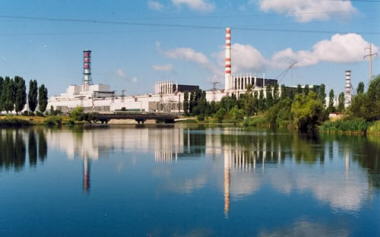Several Russian nuclear power plants have been the target of a so-called information terror campaign spreading false information about an alleged nuclear accident, according to the country's nuclear operator.
 |
Kursk NPP - move along folks, nothing to see (Image: Rosatom) |
Reports circulated on the Internet and by SMS messaging claimed that major incidents had occurred at nuclear power plants at Kursk, Novovoronezh, Balakovo and Volgodonsk. However, Energoatom, the company responsible for operating all of Russia's nuclear power plants, was quick to refute the allegations.
"The reports ... saying that there have been accidents at some of the Russian nuclear power plants are not true. It appears to be one more information attack," Energoatom said in a release issued by its information and press centre. Stressing that all of its nuclear power plants were operating normally, the organisation pointed to a dedicated website, russianatom.ru, which provides detailed real-time information about background radiation levels at all Russian nuclear power installations.
By 6 June, Energoatom said that the information attack was "subsiding", with the number of enquiries to the russianatom.ru website having peaked.
Russian radiation and nuclear safety chief Valery Menshikov said in a press release that it was difficult to speculate on who was responsible for circulating the rumours. "I think this is very incompetent people or people who artificially create the motivation of fear," he said. He countered allegations that the authorities could be covering up an incident, as happened in the immediate aftermath of the Chernobyl nuclear accident in 1986, by reference to legal requirements introduced since Chernobyl to immediately disclose any emergency with possible health ramifications. "It should be understood that this [Chernobyl] was a completely different situation and another State", he said.
This is not the first time that Russian nuclear plants have suffered so-called information attacks, seemingly designed to cause panic. In June 2008, rumours were circulated about a spurious accident at the Leningrad nuclear power station, as were allegations of radiation releases from the Volgodonsk nuclear plant. A July 2007 campaign against Volgodonsk, which according to Rosatom involved emails, SMS messages and telephone calls urging people to evacuate, led to over 500,000 telephone calls to the emergency ministry and panic buying of canned food, red wine and iodine pills.
Such misinformation incidents do not seem to be limited to nuclear installations. At the same time as the information attack on the power plants, rumours were circulating on the Internet that a poisonous cloud was spreading over parts of Russia following the alleged explosion of a mercury-containing tank in Ukraine. These allegations were also dismissed by Russian environmental monitors as groundless.
The rumours seem to have been met with scepticism in some quarters, with contributors to some Russian-language blogs and forums seemingly keen to discover the veracity of the allegations before leaping into panic mode.
The Kursk nuclear power plant had hosted a visit by local journalists representing newspapers, magazines, TV companies and online news agencies on 5 June. As one contributor to a Russian forum commented, if anything had been amiss at the plant one might have expected the journalists to notice!





_13505.jpg)
_87975.jpg)
_67826.jpg)






